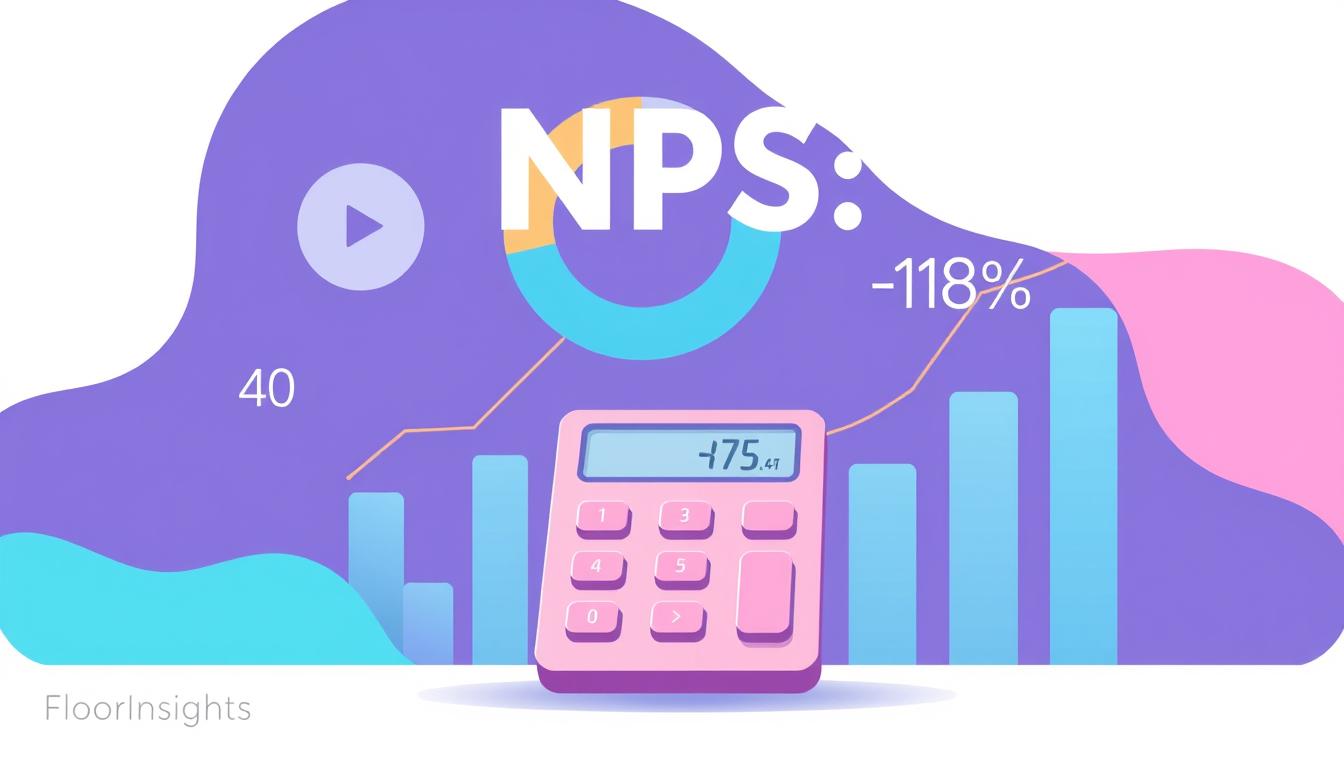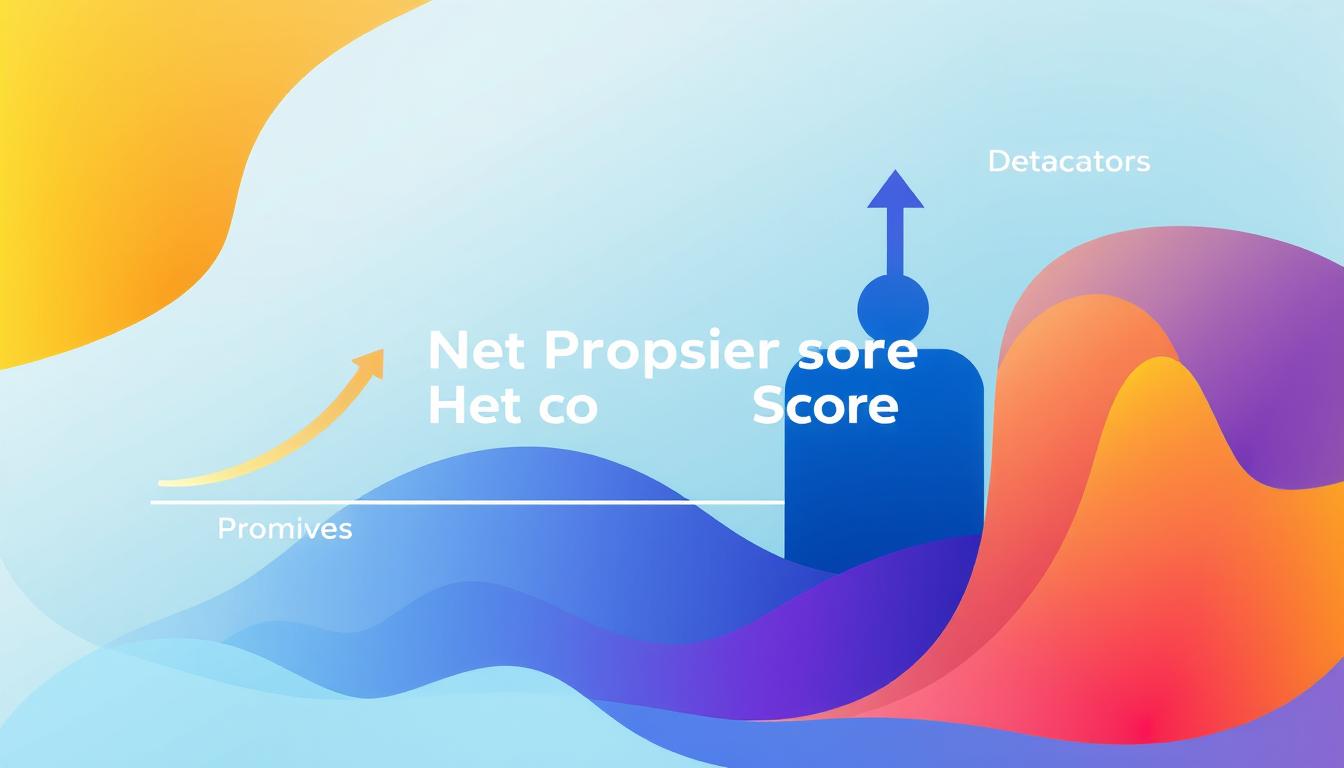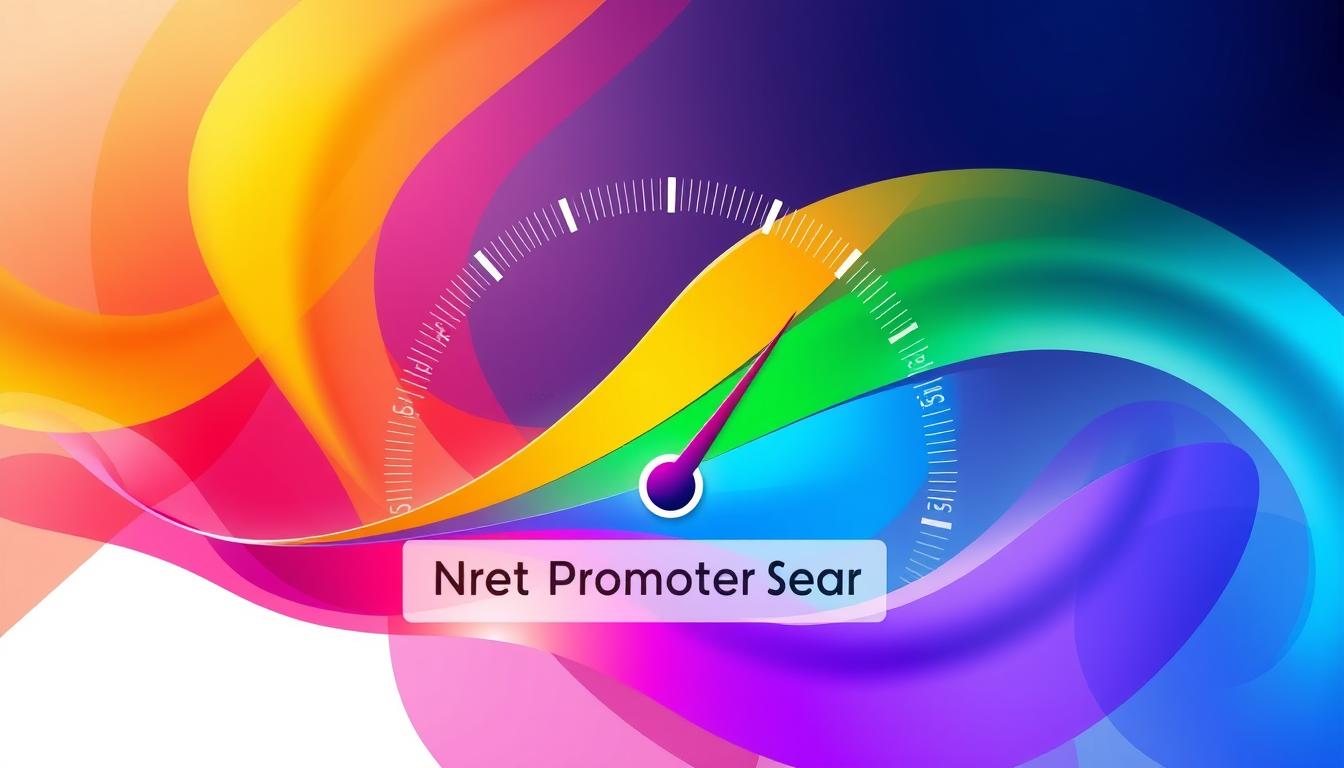In today’s competitive business landscape, the Net Promoter Score (NPS) has become a widely adopted metric for measuring customer loyalty and advocacy. While the NPS can provide valuable insights into customer sentiment, the ethical implementation of NPS surveys is crucial to maintaining trust and enhancing the overall customer experience.
In this article, we will explore the nuances of ethical NPS practices, delving into the importance of transparency, the impact on customer loyalty, and best practices for implementing NPS in a customer-centric manner. By embracing ethical principles, organizations can leverage the power of the Net Promoter Score to drive meaningful change and build lasting relationships with their customers.
Key Takeaways
- Understand the importance of ethical NPS practices in building customer trust and loyalty.
- Recognize the impact of transparency and clarity in NPS survey design and implementation.
- Learn how to respect customer privacy and data protection in the NPS survey process.
- Discover best practices for creating a customer-centric culture through ethical NPS initiatives.
- Explore the role of NPS as a catalyst for enhancing the overall customer experience.
The Power of the Net Promoter Score
The Net Promoter Score (NPS) has emerged as a powerful metric for measuring customer loyalty and advocacy. This simple yet insightful tool provides organizations with a deep understanding of their customers’ experiences and sentiments.
Understanding the NPS Methodology
At its core, the NPS is calculated based on a single question: “How likely are you to recommend our [product/service] to a friend or colleague?” Customers respond on a scale of 0 to 10, with 0 being “Not at all likely” and 10 being “Extremely likely.” Those who provide a score of 9 or 10 are considered “Promoters,” while those who give a score of 6 or below are labeled as “Detractors.” The NPS is then calculated by subtracting the percentage of Detractors from the percentage of Promoters.
The Impact of NPS on Customer Loyalty
The Net Promoter Score goes beyond just measuring customer satisfaction; it provides a powerful indicator of customer loyalty and the likelihood of referrals. Businesses that consistently maintain a high NPS have been shown to enjoy greater customer retention, increased revenue, and stronger brand advocacy. By focusing on improving the customer experience and addressing the concerns of Detractors, organizations can foster a customer-centric culture and strengthen their relationships with existing customers.
| NPS Range | Customer Loyalty Implications |
|---|---|
| 0-30 | Average to poor customer loyalty |
| 30-70 | Good to excellent customer loyalty |
| 70-100 | Exceptional customer loyalty and brand advocacy |
By understanding and leveraging the power of the Net Promoter Score, organizations can gain valuable insights into their customer experience and take proactive steps to foster long-term customer loyalty and advocacy.
Ethical Considerations in NPS Surveys
As the Net Promoter Score (NPS) gains widespread adoption, it is crucial to address the ethical implications surrounding its implementation. Maintaining customer trust and respecting privacy are paramount concerns when conducting NPS surveys.
Transparency is key in the NPS survey process. Customers should be fully informed about the purpose of the survey, how their feedback will be used, and the measures in place to protect their privacy. This openness helps build a sense of trust and ensures that customers feel empowered to provide honest and valuable feedback.
Another important ethical consideration is the design of the NPS survey itself. Careful attention must be paid to avoid leading questions or biased language that could sway customer responses. The survey should be structured in a neutral and unbiased manner, allowing customers to express their genuine opinions and experiences.
| Ethical Consideration | Impact on Customer Trust |
|---|---|
| Transparency in survey purpose and use | Builds customer trust and encourages honest feedback |
| Neutral and unbiased survey design | Ensures customers can provide genuine, uninfluenced responses |
| Respect for customer privacy | Fosters a sense of security and encourages customers to participate |
By addressing these ethical considerations, organizations can enhance the integrity of their NPS surveys and foster a stronger bond of trust with their customers. This, in turn, leads to more meaningful customer feedback and ultimately, more effective decision-making to improve the overall customer experience.
“The foundation of customer trust is built on ethical practices and transparent communication. Addressing the ethical considerations in NPS surveys is crucial for maintaining that trust and driving long-term customer loyalty.
Transparency and Clarity in Survey Design
Crafting a successful NPS survey requires more than just asking the right questions. It’s crucial to ensure transparency and clarity throughout the design process, fostering a sense of trust and enhancing the overall customer experience. By adhering to ethical principles, we can create surveys that elicit genuine, actionable feedback from our valued customers.
Avoiding Leading Questions
One of the key considerations in NPS survey design is the avoidance of leading questions. These are questions that subtly guide the respondent towards a particular answer, skewing the results and undermining the reliability of the feedback. To maintain transparency, we must be vigilant in crafting neutral, unbiased questions that allow customers to express their true sentiments without external influence.
Providing Context and Rationale
Alongside crafting impartial questions, it’s essential to provide clear context and rationale for the NPS survey. Customers are more likely to engage with and trust a survey when they understand the purpose behind it and how their feedback will be utilized. By sharing this information upfront, we demonstrate our commitment to transparency and show our customers that their voices truly matter.
Transparency and clarity in survey design are the cornerstones of ethical NPS practices. By empowering customers with information and avoiding leading questions, we can cultivate a culture of trust and foster meaningful insights that drive positive change.”
At the heart of our approach to NPS survey design is a steadfast dedication to transparency and ethical practices. By adhering to these principles, we can create surveys that not only gather valuable customer feedback but also strengthen the bond between our brand and our customers, paving the way for a truly customer-centric experience.
Respecting Customer Privacy
At the core of ethical NPS survey practices lies the unwavering commitment to protecting customer privacy. As we delve into the intricacies of customer data collection and analysis, we must never lose sight of the fundamental right of individuals to have their personal information safeguarded. This principle of customer privacy is not merely a legal requirement but a moral obligation that businesses must uphold to maintain the trust and loyalty of their valued clientele.
Securing customer data protection is a multifaceted endeavor that extends beyond simply collecting and storing information. It requires a holistic approach that encompasses informed consent, transparent data handling protocols, and robust security measures. By empowering customers with the knowledge and control over their data, we can foster a sense of trust and collaboration that is essential for the success of any NPS initiative.
Informed Consent and Transparency
Obtaining informed consent from customers is a crucial step in ensuring the ethical conduct of NPS surveys. Customers must be made aware of the purpose, scope, and potential uses of the data they provide, allowing them to make an informed decision about their participation. This level of transparency not only demonstrates our commitment to ethical practices but also reinforces the trust that customers place in our organization.
Secure Data Handling
The responsible handling of customer data is paramount in maintaining their privacy. We must implement robust security measures to safeguard the confidentiality and integrity of the information entrusted to us. This includes the use of encryption, access controls, and secure storage protocols to prevent unauthorized access or misuse of customer data.
Upholding Ethical Standards
By prioritizing customer privacy and data protection in our NPS survey practices, we not only fulfill our ethical obligations but also contribute to the cultivation of a customer-centric culture. This commitment to ethical practices resonates with customers, solidifying their trust in our brand and paving the way for meaningful and long-lasting relationships.
| Key Ethical Considerations | Corresponding Practices |
|---|---|
| Informed Consent | Clearly communicating the purpose and scope of the NPS survey, and obtaining explicit consent from customers before data collection. |
| Secure Data Handling | Implementing robust security measures, such as encryption, access controls, and secure storage protocols, to safeguard customer data. |
| Transparency | Providing customers with detailed information about how their data will be used and stored, and respecting their right to privacy. |
Building Trust through Ethical Practices
At the core of successful Net Promoter Score (NPS) surveys lies the unwavering trust between businesses and their customers. By embracing ethical practices, companies can foster this trust and enhance customer engagement, ultimately driving a more customer-centric strategy.
Communicating Survey Purpose and Use
Transparency is the cornerstone of ethical NPS surveys. Clearly communicating the purpose of the survey and how the collected data will be used is crucial in building trust with customers. By being upfront about the reasons behind the survey and how their feedback will shape the customer experience, businesses can reassure customers that their input is valued and will lead to meaningful improvements.
Furthermore, providing customers with a clear understanding of how their personal information will be handled and protected can further solidify their trust in the process. This open and honest approach not only demonstrates the company’s commitment to ethical practices but also encourages customers to participate actively and provide genuine feedback.
| Ethical Practices | Impact on Customer Trust |
|---|---|
| Transparent communication of survey purpose and use | Reassures customers that their feedback is valued and will lead to positive changes |
| Protecting customer privacy and data | Builds confidence in the company’s commitment to ethical practices |
| Actively responding to customer feedback | Demonstrates that the company is truly listening and acting on customer input |
By embracing these ethical practices, businesses can cultivate a culture of trust and customer engagement, ultimately driving a more customer-centric strategy that delivers lasting value for both the company and its customers.
Enhancing Customer Experience with Ethical NPS
By implementing Net Promoter Score (NPS) surveys with a focus on ethical practices, organizations can elevate the overall customer experience. This approach enables them to gather actionable insights that drive meaningful improvements and strengthen customer relationships.
Gathering Actionable Insights
When conducted ethically, NPS surveys provide a wealth of valuable customer feedback. By asking customers to rate their likelihood of recommending the company, organizations can identify areas for improvement and pinpoint the drivers of customer loyalty.
- Understand customer pain points and frustrations
- Identify opportunities to enhance the customer journey
- Uncover customer preferences and expectations
- Gather qualitative insights through open-ended responses
By analyzing this feedback through a customer-centric lens, businesses can make data-driven decisions that directly address the needs and concerns of their customers. This approach fosters a culture of continuous improvement, where the customer experience is the driving force behind strategic initiatives.
Gathering actionable insights from NPS surveys is key to enhancing the customer experience. By listening to our customers and responding to their feedback, we can build long-lasting, trust-based relationships.”
Ethical NPS surveys, grounded in transparency and respect for customer privacy, empower organizations to cultivate a customer-centric strategy that prioritizes customer experience and customer feedback. This holistic approach not only strengthens customer loyalty but also positions the company as a trusted, ethical partner in the eyes of its clientele.
Net Promoter Score: A Catalyst for Customer-Centric Culture
When implemented ethically, the Net Promoter Score (NPS) can serve as a powerful catalyst for cultivating a customer-centric culture within an organization. By aligning the entire team around the shared goal of customer satisfaction, ethical NPS practices can foster stronger customer loyalty, enhance meaningful customer engagement, and drive a genuine commitment to ethical business practices.
At the heart of a customer-centric culture lies a deep understanding of customer needs and preferences. The NPS methodology, when applied thoughtfully and transparently, provides valuable insights that enable organizations to make data-driven decisions focused on improving the customer experience. This, in turn, can lead to increased customer loyalty, as customers feel genuinely heard and valued.
Moreover, ethical NPS practices encourage cross-functional collaboration, as teams work together to address customer pain points and optimize the customer journey. This collaborative approach nurtures a shared sense of ownership and accountability, empowering employees at all levels to contribute to the organization’s customer-centric goals.
By embracing the power of the Net Promoter Score within an ethical framework, businesses can cultivate a customer-centric culture that permeates every aspect of their operations. This strategic alignment not only strengthens customer loyalty and engagement but also positions the organization as a trusted, ethical partner in the eyes of its customers.
Implementing the Net Promoter Score with a customer-first mindset can be a transformative experience for an organization, fostering a culture of genuine care, transparency, and commitment to excellence in customer service.”
| Key Benefits of Ethical NPS Implementation | Impact on Customer-Centric Culture |
|---|
- Increased customer loyalty
- Enhanced customer engagement
- Improved data-driven decision making
- Fostered cross-functional collaboration
- Demonstrated commitment to ethical practices
- Deeper understanding of customer needs
- Shared sense of ownership and accountability
- Alignment of the organization around customer satisfaction
- Strengthened reputation as a trusted, ethical partner
By embracing the power of the Net Promoter Score within an ethical framework, businesses can cultivate a customer-centric culture that permeates every aspect of their operations. This strategic alignment not only strengthens customer loyalty and engagement but also positions the organization as a trusted, ethical partner in the eyes of its customers.
Best Practices for Ethical NPS Implementation
Implementing the Net Promoter Score (NPS) survey in an ethical manner is crucial for building lasting customer trust and driving meaningful insights. By adopting best practices, organizations can ensure their NPS implementation aligns with high standards of transparency and customer-centricity.
Training and Awareness for Survey Administrators
One of the cornerstones of ethical NPS implementation is comprehensive training and ongoing awareness for survey administrators. These individuals play a vital role in shaping the customer’s perception and experience with the feedback process. We recommend the following best practices:
- Provide extensive training on the purpose, methodology, and benefits of NPS to ensure survey administrators fully understand the value it brings to both the organization and its customers.
- Emphasize the importance of ethical practices, such as avoiding leading questions, respecting customer privacy, and communicating survey objectives transparently.
- Encourage survey administrators to approach customer interactions with empathy and a genuine interest in understanding their needs and concerns.
- Implement regular refresher courses and performance reviews to maintain high standards of ethical conduct and customer-centric behavior.
By equipping survey administrators with the knowledge and skills to navigate the NPS process ethically, organizations can build a culture of trust and transparency that resonates with their customers.

Ultimately, the success of an NPS program hinges on its ability to gather authentic customer feedback and drive meaningful change. By adhering to ethical practices, organizations can cultivate a customer-centric approach that not only improves NPS scores but also strengthens long-term customer loyalty and advocacy.
Conclusion
In our concluding thoughts, the ethical implementation of Net Promoter Score surveys emerges as a pivotal strategy for organizations seeking to build and nurture strong customer relationships. By prioritizing transparency, privacy, and trust, we can leverage the power of NPS to foster a customer-centric culture and drive meaningful improvements in the customer experience.
As we’ve explored throughout this article, the Net Promoter Score is a powerful metric that can provide valuable insights into customer loyalty and sentiment. However, the ethical considerations surrounding NPS surveys are crucial. By designing surveys with clarity and avoiding leading questions, respecting customer privacy, and communicating the purpose and usage of the data, we can instill trust and enhance the overall customer experience.
Ultimately, the adoption of ethical practices in NPS surveys serves as a catalyst for a customer-centric organizational culture. By gathering actionable insights and using them to make informed decisions, we can unlock the true potential of the Net Promoter Score and drive sustainable growth through strengthened customer loyalty and satisfaction.
FAQ
What is the Net Promoter Score (NPS)?
The Net Promoter Score (NPS) is a widely used metric that measures customer loyalty and advocacy. It is calculated based on the likelihood of customers to recommend a product or service to others.
How is the NPS calculated?
The NPS is calculated by asking customers a single question: “How likely are you to recommend [company/product/service] to a friend or colleague?” Customers respond on a scale of 0 to 10, with 0 being “Not at all likely” and 10 being “Extremely likely.” Responses are then categorized into three groups: Promoters (9-10), Passives (7-8), and Detractors (0-6). The NPS is calculated by subtracting the percentage of Detractors from the percentage of Promoters.
What is the importance of the NPS for customer loyalty and advocacy?
The NPS is a valuable metric because it provides insights into customer loyalty and the likelihood of customers to recommend a product or service to others. Promoters, or highly satisfied customers, are more likely to become brand advocates and drive positive word-of-mouth, which can lead to increased customer acquisition and retention.
What are the ethical considerations in conducting NPS surveys?
Ethical considerations in NPS surveys include ensuring customer privacy, maintaining transparency about the purpose and use of the survey, avoiding leading questions, and building trust with customers throughout the feedback process. It is crucial to implement NPS surveys in a way that respects customer rights and enhances the overall customer experience.
How can organizations ensure transparency and clarity in NPS survey design?
To ensure transparency and clarity in NPS survey design, organizations should avoid leading questions, provide clear context and rationale for the survey, and communicate the purpose and intended use of the customer feedback. This helps build trust and encourages customers to provide honest and valuable insights.
Why is respecting customer privacy important in NPS surveys?
Respecting customer privacy is a fundamental ethical responsibility when conducting NPS surveys. Organizations must ensure the secure handling of customer data, obtain informed consent, and be transparent about how the collected information will be used. Protecting customer privacy helps build trust and maintain the integrity of the NPS feedback process.
How can organizations build trust through ethical practices in NPS surveys?
Building trust with customers is crucial for the success of NPS surveys. Ethical practices, such as clearly communicating the purpose and intended use of the survey, can foster trust and enhance customer engagement. Showing customers how their feedback is used to drive meaningful improvements can further strengthen the relationship and trust between the organization and its customers.
How can ethical NPS practices enhance the overall customer experience?
By implementing NPS surveys with a focus on ethical practices, organizations can enhance the overall customer experience. Gathering actionable insights from NPS surveys that drive genuine improvements, while maintaining transparency and respecting customer privacy, can lead to increased customer satisfaction, loyalty, and advocacy.
How can the Net Promoter Score serve as a catalyst for a customer-centric culture?
When implemented ethically, the Net Promoter Score can serve as a catalyst for cultivating a customer-centric culture within an organization. By prioritizing customer feedback, building trust, and aligning the entire organization around a shared commitment to customer satisfaction, the NPS can help foster a deep understanding of customer needs and drive a customer-first mindset throughout the organization.
What are the best practices for ethical NPS implementation?
Best practices for ethical NPS implementation include training and awareness for survey administrators, emphasizing the importance of ethical practices and their impact on customer trust and engagement. Organizations should also focus on maintaining transparency, respecting customer privacy, and gathering actionable insights that drive meaningful improvements in the customer experience.






